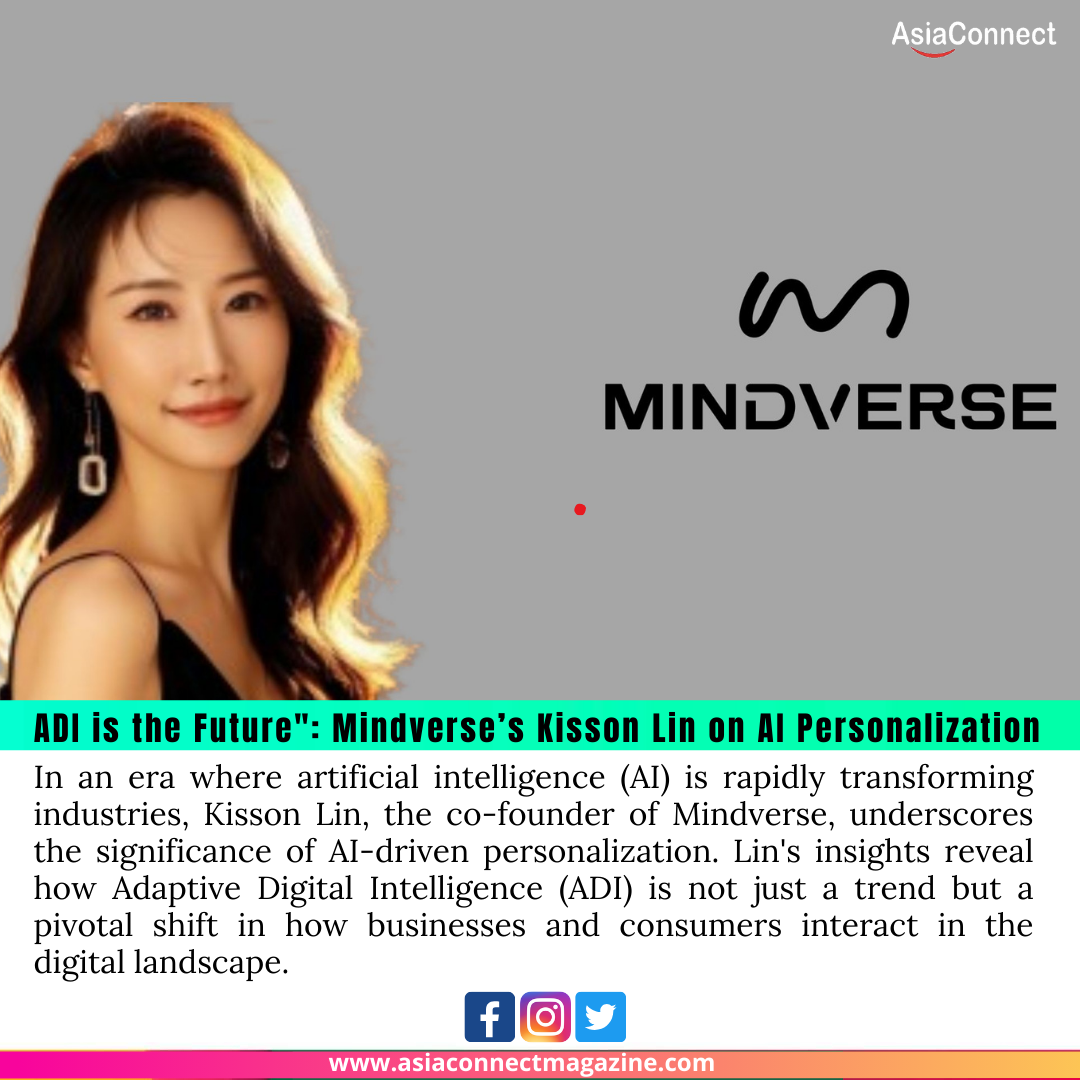In an era where artificial intelligence (AI) is rapidly transforming industries, Kisson Lin, the co-founder of Mindverse, underscores the significance of AI-driven personalization. Lin’s insights reveal how Adaptive Digital Intelligence (ADI) is not just a trend but a pivotal shift in how businesses and consumers interact in the digital landscape.
Understanding Adaptive Digital Intelligence (ADI)
Adaptive Digital Intelligence refers to AI systems that continuously learn from user interactions and adapt to individual preferences. This personalized approach enhances user experience by delivering tailored content, recommendations, and services. According to Lin, the future of technology lies in creating solutions that resonate with users on a personal level, making ADI a cornerstone of this evolution.
The Role of Personalization in Modern Business
In today’s digital marketplace, personalization is paramount. Consumers expect brands to understand their needs and preferences, which drives loyalty and engagement. Lin emphasizes that businesses leveraging AI for personalization can significantly enhance customer relationships. By analyzing vast amounts of data, AI can identify trends and insights that inform more effective marketing strategies and product development.
Lin states, “Personalization is not just a value-add; it’s a necessity. Companies that fail to adapt will find themselves outpaced by competitors who embrace these technologies.” This sentiment echoes throughout the industry, highlighting the urgency for organizations to integrate AI into their operations.
Mindverse’s Approach to AI Personalization
Mindverse stands at the forefront of this movement, developing innovative solutions that harness the power of ADI. Lin explains that the company employs advanced machine learning algorithms to analyze user behavior and preferences in real-time. This capability allows Mindverse to create highly personalized experiences that evolve alongside users.
For example, Mindverse’s platform can recommend content, products, or services that align with individual user profiles. This not only enhances user satisfaction but also drives higher conversion rates for businesses. By fostering deeper connections with users, Mindverse aims to redefine the standards of customer engagement in the digital age.
The Challenges of Implementing AI Personalization
While the benefits of AI personalization are evident, Lin acknowledges the challenges involved. Data privacy concerns and ethical considerations are at the forefront of discussions about AI. Companies must navigate these complexities carefully to maintain user trust. Lin advocates for transparency in AI practices, emphasizing that users should be informed about how their data is used to enhance personalization.
Furthermore, the implementation of ADI requires significant investment in technology and talent. Companies must commit to continuous learning and adaptation to stay ahead of the curve. Lin encourages businesses to prioritize building a robust infrastructure that supports AI integration, ensuring they are equipped to leverage the full potential of personalization.
The Future of AI Personalization
Looking ahead, Kisson Lin envisions a landscape where AI personalization becomes ubiquitous across all sectors. From retail to healthcare, the potential applications are vast. As technology continues to evolve, Lin believes that ADI will play a critical role in shaping user experiences, driving innovation, and enhancing business outcomes.
In conclusion, Kisson Lin’s insights into AI personalization illuminate the transformative potential of Adaptive Digital Intelligence. As businesses increasingly recognize the importance of personalized interactions, embracing ADI will be essential for staying competitive in a rapidly changing digital landscape. With Mindverse leading the charge, the future of personalization looks promising, paving the way for deeper connections between brands and their audiences.





